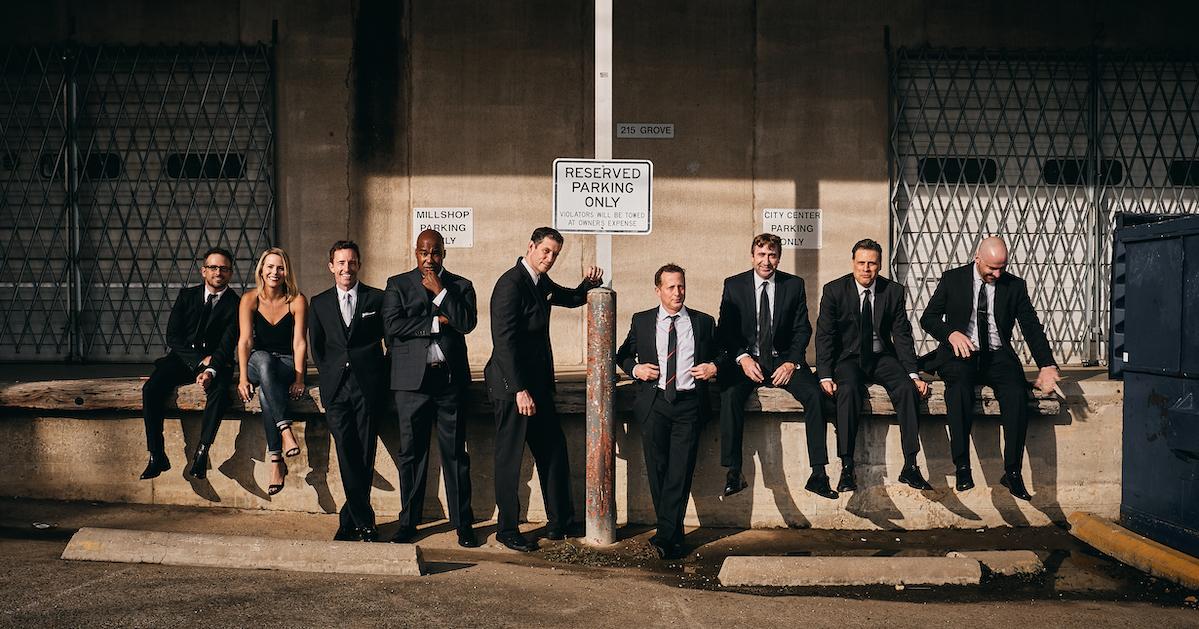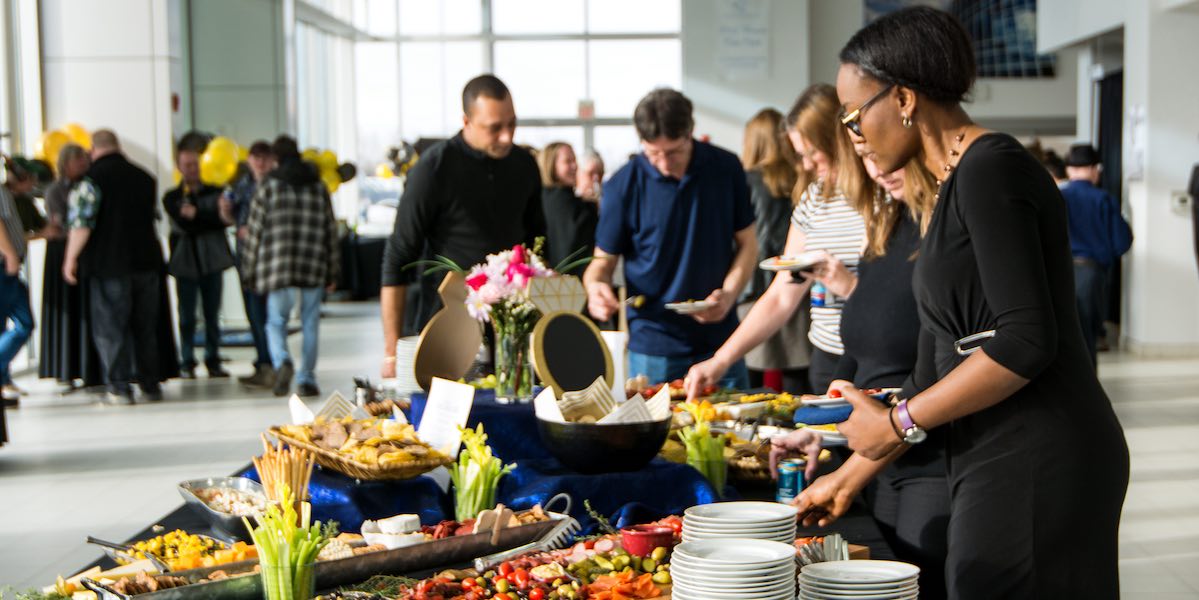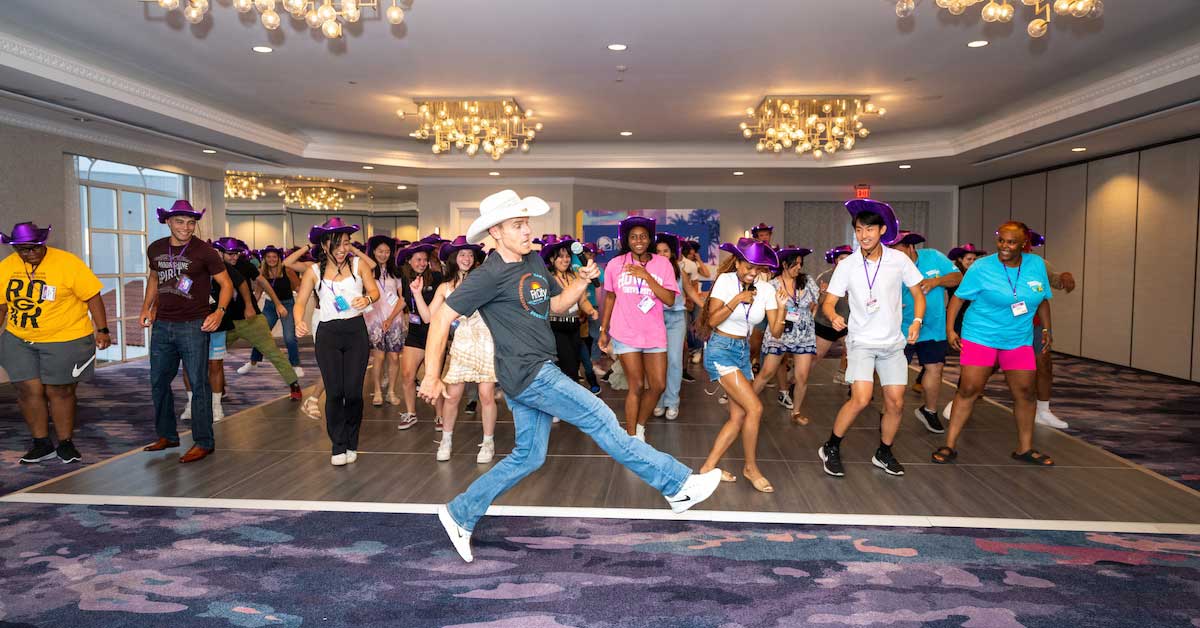If you have never been to an improv show, you may think that it’s all about a bunch of comedians in competition with one another, each to outshine the rest in order to rise to the top of the group and advance his or her own career. But you would be wrong.
In fact, according to David Wilk, co-founder of a 22-year-old improv group that has risen to great acclaim not only on stage but in the corporate world, improv is all about the fine art of collaborative action. Each member of the improv troupe is on stage to make all the others succeed in collectively creating a symphony of single voices that meld into a captivating show.
That cornerstone strategy, as Wilk and his partners in the improv troupe Four Day Weekend say, is called “Yes, and.” The big-picture “Yes, and” for the troupe would be that yes, they became a very successful improv troupe, and the group took that simple, collaborative strategy and translated it into an experience that teaches corporate employees to work as a collaborative team.
Four Day Weekend, which originated in Fort Worth, Texas, developed an impressive group of Fortune 500 clients, with the troupe traveling all over the world inspiring and training employees of companies such as American Airlines, American Express, FedEx Office, Hilton, Hyatt Southwest Airlines and the U.S. Congress Democratic Caucus.
It is in the pursuit of this education/inspiration mission that Four Day Weekend will be bringing its troupe to Las Vegas Sept. 9-12 for IMEX America 2019.
Frank Ford, another co-founder of Four Day Weekend, says the formula for the troupe’s presentation will be the same as it always has been—lots of fun and lots of energy, with lots of important learning mixed in.
“As my good friend David Wilk always says, we are the spoonful of sugar that makes the medicine go down,” Ford says. “Both our workshops and our keynotes are high-energy experiences in which the time seems to fly by, because the audience is having a lot of fun.”
Ford, like Wilk, studied with the famous Second City comedy and improv troupe in Chicago.
“But the key is that while they are having all that fun, they will be learning key collaboration skills that will make their work lives more productive and make their companies more productive as well,” he says.
Wilk says the “Yes, and” philosophy is part of the three responses people can offer when asked to respond to a challenge on stage—the others being “No, I can’t or don’t want to do it” and “Yes, but” (though Wilk says “Yes, but” is really just another way of saying no).
“I say BUT means Behold the Underlying Truth, so anything that is said before ‘but’ really doesn’t mean anything,” he says.
And then there is “Yes, and,” which is essentially part of the longer answer “Yes, we can do that, and here is how we can do it”—a totally positive way of looking at the strategy for handling a challenge.
Wilk and Ford say a good example of how Four Day Weekend profited from the “Yes, and” approach in developing its own business model is how it came to publish a bestselling book showing others how to employ the philosophy going forward.
“We started with our own improv theater in Fort Worth just a bit over 22 years ago, and before long, we came upon the idea that we should try it as a basic philosophy as a business model and see if it would work, and guess what? It did,” Ford says.
Four Day Weekend embarked on a successful campaign as trainers for corporate clients and then big-picture corporate strategy consultants.
“So after a while our corporate clients asked us if we had ever considered writing a book,” Ford says. “And we said, ‘Yes, and we are going to team up with someone to help us write that book right now.’”
The book was called, Happy Accidents, the Transformative Power of Yes, And, which became a U.S. bestseller in 2017, Ford says. Armed with the full package of what it takes to offer empowering strategies to corporations and their employees, Four Day Weekend has literally traveled the world sharing “Yes, and.”
Ford points out that while the Four Day Weekend team is composed of “professional improvisation artists,” the world as a whole is actually made up of billions of improvisation practitioners who just may not realize that they use their own form of improv in their daily lives.
“Life is not scripted,” he says. “Everyone responds to the situations that are thrust upon them every day and they do so with their own improvisations. What we, as professional improvisors, do is show them techniques and strategies that worked for us.”
Wilk says the attendees at IMEX America can expect to have fun, but not be made fun of.
“These are very interactive experiences,” he says. “We say we don’t use PowerPoint, we use people point. We get people from the audience involved, sometimes calling them to the stage and sometimes having them do exercises among themselves in the audience.”
But, Wilk says, people will not be pulled out of their comfort zone.
“We like to say we have fun with people, not make fun of people,” he adds.
“Because we are comedians, people tend to think, ‘Oh, you are quick and fast on your feet, but that is not really the truth; the truth is that we listen very well, and we understand very well the idea of collaboration, and that is what we bring to the workspace of other companies,” Wilk says.



.jpeg?sfvrsn=96553155_2)



